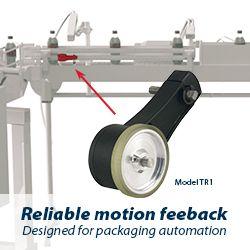At XPONENTIAL 2017, Inertial Sense announces the release of the world's smallest GPS aided inertial navigation system set for this summer
The μINS is a tiny sensor module that is designed to provide high-quality direction, position, and velocity data for drones and robotic applications.
DALLAS, May 9, 2017 /PRNewswire/ -- Inertial Sense announced today at XPONENTIAL that they will be releasing a high-quality, low-cost navigation system later this summer: the "μINS". Historically, quality GPS inertial navigation has been expensive and were only designed into a small number of systems. As the commercial and consumer drone industries grow, the need for an accurate, low-cost navigation system has become more apparent. Inertial Sense engineers have invented a patent pending design that enables this technology to be smaller and less expensive than any commercial predecessor.
The μINS is a tiny sensor module that is designed to provide high-quality direction, position, and velocity data for drones and robotic applications. It provides this data by fusing sensor data from GPS (GNSS), gyros, accelerometers, magnetometers, and a barometric pressure sensor. Inertial Sense employees will be displaying the μINS at their XPONENTIAL booth (#2011) for the duration of the show. All attendees at the show are invited to visit their booth and see this new and revolutionary technology. Other interested parties should visit inertialsense.com for more information.
Inertial Sense is a privately-owned US company that specializes in designing and manufacturing low-cost, high-performance GPS inertial navigation technology for commercial and consumer products.
Website: www.inertialsense.com,
http://xponential.vporoom.com/InertialSense
Featured Product

